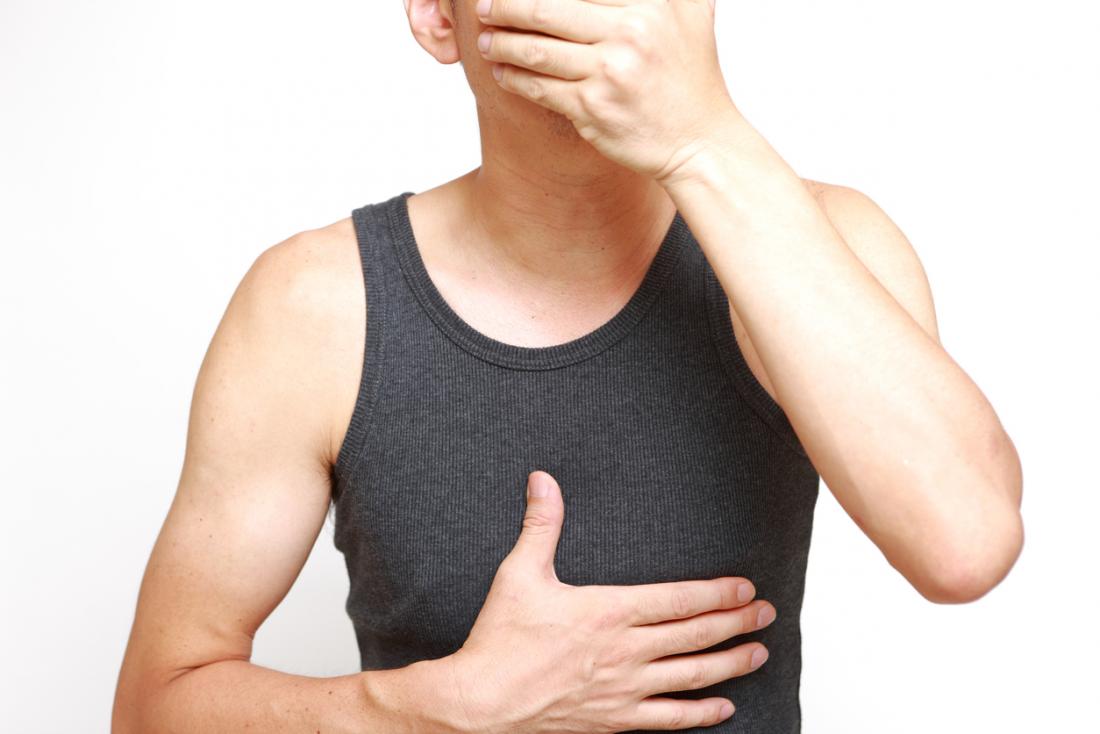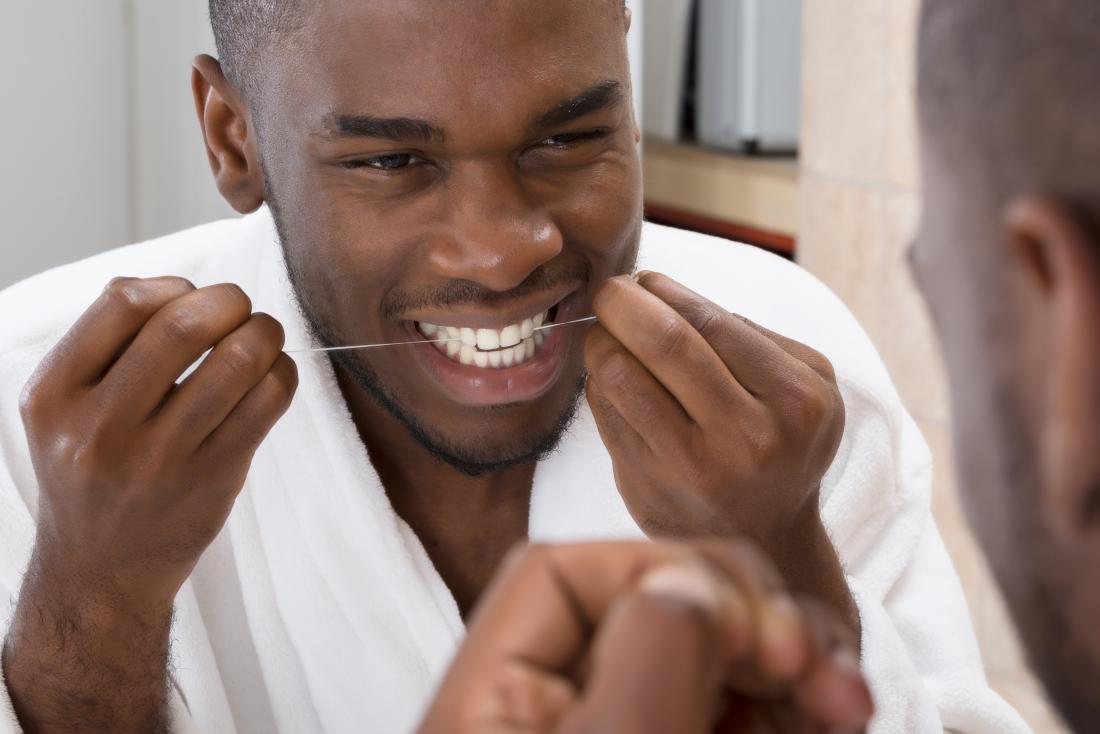Taste is a complex sense that can be affected by many factors, including poor dental hygiene, dry mouth, or pregnancy.
Treating a persistent bitter taste involves treating any underlying conditions, but people can manage the unpleasant taste with some simple home remedies in the meantime.
In this article, we cover 13 possible causes of a bitter taste in the mouth. We also discuss symptoms and treatments.
Signs and symptoms

Dysgeusia is the medical term for an altered taste in the mouth.
A persistent altered taste in the mouth is known medically as dysgeusia. This taste is described as unpleasant and can last for a long time until the underlying cause is treated.
People with dysgeusia may experience a constant taste that they often describe as one of the following:
- bitter
- metallic
- rancid or foul
- salty
The taste can be distracting, and may even make it hard to taste other things while eating or drinking. A person may still have the taste even after brushing their teeth. They may also experience other symptoms depending on the cause.
Causes
Many of the causes of a bitter taste in the mouth are not serious. However, the symptoms can be irritating and may interfere with a person’s regular diet or their enjoyment of daily life.
The following conditions can cause a bitter taste in the mouth:
Dry mouth
A dry mouth, also known as xerostomia, occurs when the mouth does not produce enough saliva. Because saliva helps reduce the bacteria in the mouth, having less saliva means that more bacteria can survive.
People with xerostomia feel a sticky, dry feeling in their mouth. This could be caused by factors such as medications, pre-existing disorders, or tobacco use. A person can also get dry mouth if they have a stuffy nose because breathing through the mouth can dry it out.
People with a persistently dry mouth should talk to their doctor for a proper diagnosis.
Dental issues
Poor dental hygiene can also cause a bitter taste in the mouth. It may also cause an increase in cavities, infections, and gum disease or gingivitis.
Many common dental issues can be avoided by regularly brushing and flossing the teeth. Some people may also find that using a tongue scraper helps to clear up some symptoms.
Using an antibacterial mouthwash in between brushing may help keep foul-tasting bacteria to a minimum.
Pregnancy
A bitter or metallic taste in the mouth is a common complaint during the first trimester of pregnancy.
The hormones in the body fluctuate during pregnancy. This variation can affect the senses, which can cause specific cravings and make some foods or smells seem disgusting.
Many people who are pregnant also notice a metallic, bitter, or tinny taste in their mouths. This can be annoying, but it usually goes away later in the pregnancy or after giving birth.
Burning mouth syndrome
Burning mouth syndrome is a condition that causes a burning sensation in the mouth. The feeling can vary, but many describe it as similar to eating spicy peppers. Alongside, some people may also experience a bitter or rancid taste in their mouth.
The symptoms of burning mouth syndrome may appear sporadically, but it can also be chronic and last for a long time.
Some people with the syndrome may have difficulty eating or drinking, while others may find that this relieves their symptoms.
Menopause
Women going through menopause may also experience a bitter taste in their mouth. This could be due to lower levels of estrogen in the body, which can lead to a secondary condition, such as burning mouth syndrome. It may also be due to a persistently dry mouth.
GERD or acid reflux

An unwanted bitter taste in the mouth may be caused by GERD or acid reflux.
Gastroesophageal reflux disease (GERD) or acid reflux may be the source of an unwanted bitter taste in the mouth.
These conditions occur when the muscle or sphincter at the top of the stomach becomes weak and allows acid or bile to rise up into the food pipe.
GERD tends to irritate the food pipe, causing a burning sensation in the chest or abdomen. It can also bring about a foul or bitter taste in the mouth, which may persist as long as the other symptoms.
Oral thrush
A yeast infection in the mouth often causes white spots or blotches to appear on the tongue, mouth, or throat. It may also cause a bitter or unpleasant taste that may persist until the infection is treated.
Pine nut syndrome
In some people, eating pine nuts may cause a bitter or metallic taste in the mouth. This often happens 1 to 3 days after eating pine nuts. The syndrome also shows no other symptoms and goes away after a couple of weeks.
Stress and anxiety
High stress and anxiety levels can stimulate the stress response in the body, which often alters a person’s sense of taste. Anxiety can cause dry mouth, which frequently results in a bitter taste.
Nerve damage
Like our other senses, taste buds are directly connected to the nerves of the brain. Damage to the nerves can cause a change in how a person experiences tastes.
Nerve damage can result from a head injury or conditions that include the following:
Medications and oral supplements
In some people, certain medicines, supplements, or medical treatments may cause a bitter taste in the mouth. This may be because the medicines taste bitter or because chemicals in them are excreted into the saliva.
A person should consult their doctor to find out if their medications could be causing a bitter taste.
Medications that may lead to a bitter taste include:
Illnesses
Certain illnesses, including sinus infections or colds, can be accompanied by a bitter taste in the mouth.
During these illnesses, the body sends out inflammatory proteins to capture harmful cells. These proteins may also affect the tongue and taste buds, which could make a person experience a taste in their mouth that is more bitter than normal.
Cancer treatment
A person who is undergoing cancer treatment may experience an off taste in their mouth when eating or drinking.
Chemotherapy and radiation treatment may irritate the taste buds in some people, which may cause even simple things, such as plain toast or water, to have a bitter or unpleasant taste.
Treatment and home remedies

Regular dental care is recommended to help reduce a bitter taste in the mouth.
Treating a bitter taste in the mouth for good normally involves treating the underlying cause. A doctor can often diagnose the problem by asking about any other symptoms and medications and running tests. They can then recommend appropriate treatments.
Home remedies may help some people find temporary relief from their symptoms while looking for a permanent solution, though they may not work for everyone.
Home remedies that may help reduce a bitter taste in the mouth include:
- regular dental care, such as brushing, flossing, and using an antibacterial mouthwash
- chewing sugar-free gum to keep saliva moving in the mouth
- drinking plenty of fluids throughout the day
- avoiding risk factors for acid reflux, such as eating greasy or spicy foods, and reducing or eliminating tobacco products and alcohol
- rinsing the mouth with a teaspoon of baking soda added to a glass of water
Outlook
Experiencing a bitter taste in the mouth is fairly common, and it should not be an immediate reason to be concerned.
Most bitter tastes are treatable, and a person may be able to manage this symptom while a doctor diagnoses the cause.
Once the cause is found and treatment begins, the taste buds should return to normal, and the bitter taste in the mouth should disappear.
Let’s block ads! (Why?)





